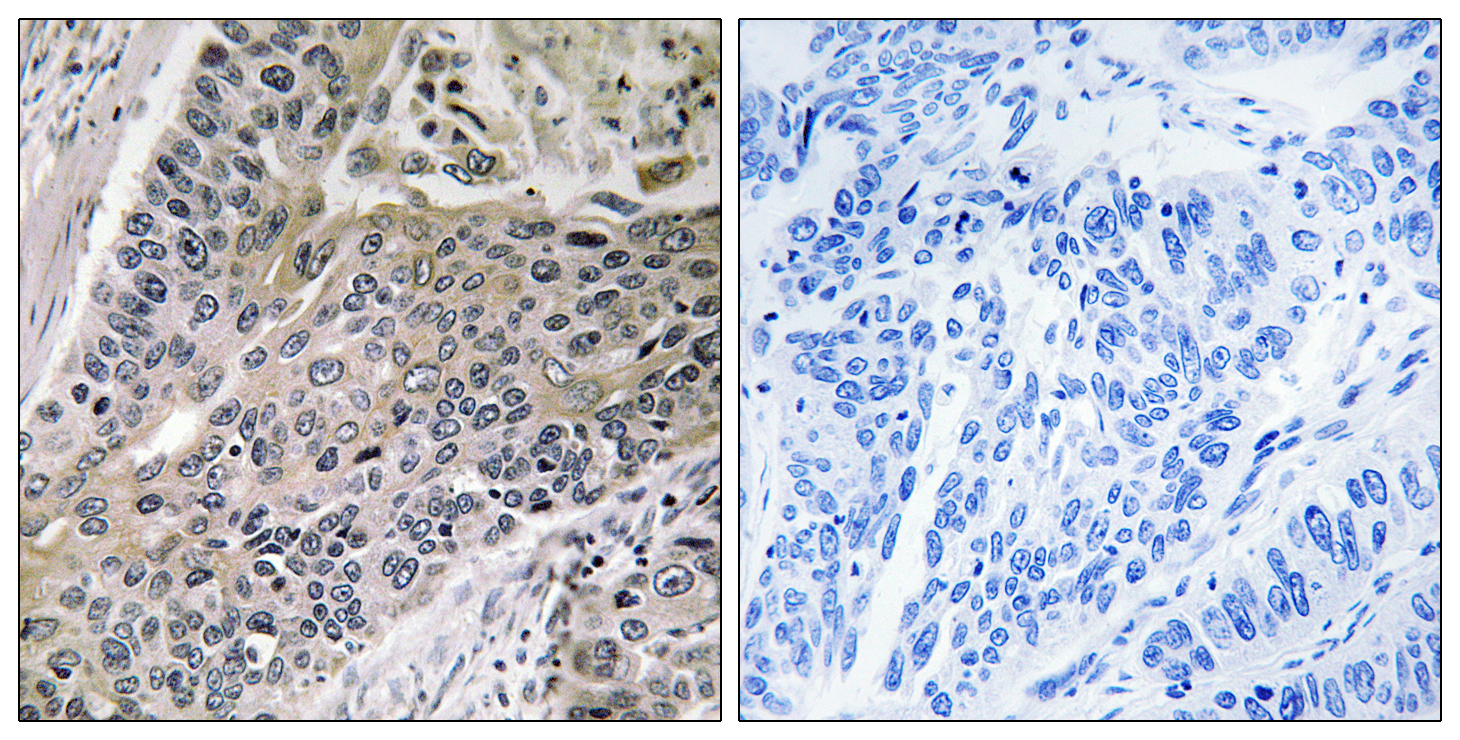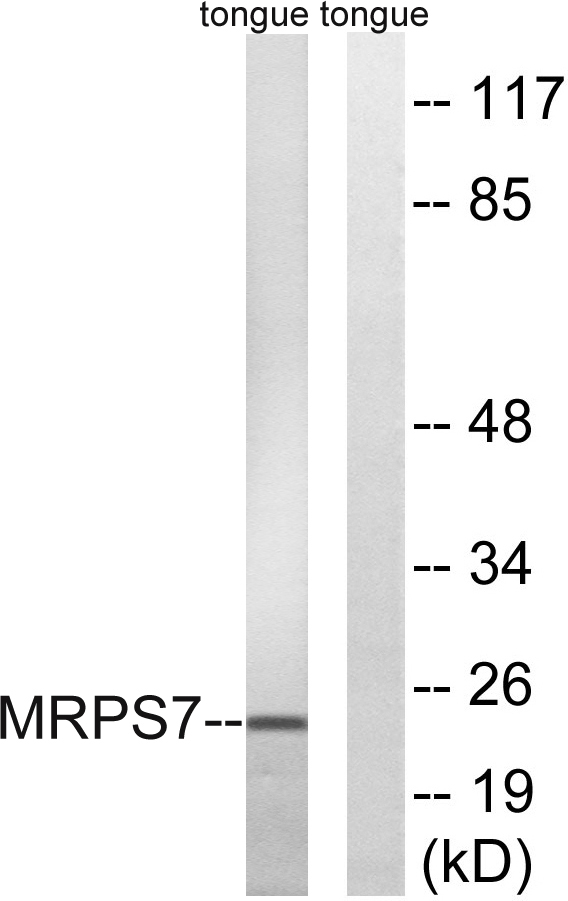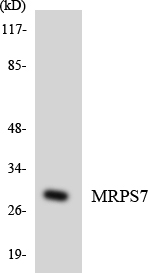产品名称
MRP-S7 Rabbit Polyclonal Antibody
别名
MRPS7; 28S ribosomal protein S7; mitochondrial; MRP-S7; S7mt; bMRP-27a; bMRP27a
蛋白名称
28S ribosomal protein S7 mitochondrial
存储缓冲液
Liquid in PBS containing 50% glycerol, 0.5% BSA and 0.02% New type preservative N.
Human Gene Link
http://www.ncbi.nlm.nih.gov/sites/entrez?db=gene&term=51081
Human Swissprot No.
Q9Y2R9
Human Swissprot Link
http://www.uniprot.org/uniprotkb/Q9Y2R9/entry
Mouse Gene Link
http://www.ncbi.nlm.nih.gov/sites/entrez?db=gene&term=50529
Mouse Swissprot No.
Q80X85
Mouse Swissprot Link
http://www.uniprot.org/uniprot/Q80X85
Rat Gene Link
http://www.ncbi.nlm.nih.gov/sites/entrez?db=gene&term=113958
Rat Swissprot Link
http://www.uniprot.org/uniprot/Q5I0K8
免疫原
The antiserum was produced against synthesized peptide derived from human MRPS7. AA range:91-140
特异性
MRP-S7 Polyclonal Antibody detects endogenous levels of MRP-S7 protein.
宿主
Polyclonal, Rabbit,IgG
背景介绍
Mammalian mitochondrial ribosomal proteins are encoded by nuclear genes and help in protein synthesis within the mitochondrion. Mitochondrial ribosomes (mitoribosomes) consist of a small 28S subunit and a large 39S subunit. They have an estimated 75% protein to rRNA composition compared to prokaryotic ribosomes, where this ratio is reversed. Another difference between mammalian mitoribosomes and prokaryotic ribosomes is that the latter contain a 5S rRNA. Among different species, the proteins comprising the mitoribosome differ greatly in sequence, and sometimes in biochemical properties, which prevents easy recognition by sequence homology. This gene encodes a 28S subunit protein. In the prokaryotic ribosome, the comparable protein is thought to play an essential role in organizing the 3' domain of the 16 S rRNA in the vicinity of the P- and A-sites. Pseudogenes corresponding to
组织表达
Eye,Skeletal muscle,Small intestine,Umbilical cord blood,
功能
similarity:Belongs to the ribosomal protein S7P family.,subunit:Component of the mitochondrial ribosome small subunit (28S) which comprises a 12S rRNA and about 30 distinct proteins.,
纯化
The antibody was affinity-purified from rabbit antiserum by affinity-chromatography using epitope-specific immunogen.



